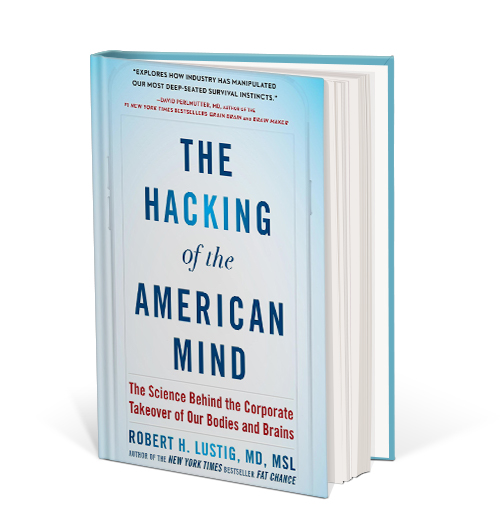
The Hacking of the American Mind
Robert Lustig
Five years ago, UCSF pediatric endocrinologist Dr. Robert H. Lustig came out swinging with Fat Chance, a well-argued if polemical exposé of how the processed sugar industry has come to dominate food production (and consumption) with disastrous effects. Now he’s back with the even more compelling The Hacking of the American Mind.
Lustig’s thesis is that not one but several industries consciously develop products designed to foment addictive behavior, showing convincingly that the brain-signaling pathways implicated in substance addictions (drugs, alcohol) are the same as those implicated in behavioral addictions (addiction to social media, for example). He lays out in plain language how the dopamine stimulus mechanism works, how it can be abused to the point of permanent damage, how the serotonin production system mediates these reactions, and how some of the very same addictive behaviors actually thwart the behaviors that would promote serotonin production and a healthy balance between the two.
His wide-ranging assault touches on processed food, substance abuse, and most significantly for modern audiences, the profound new role of “attention addiction” — being unable to tear your attention away from social media.
As in Fat Chance, Lustig writes in an informal, direct, highly-readable, no-BS voice that makes it sound like he is in a classroom addressing a small group of students.
This book is part of the 2017 Berkeley Summer Reading List. Stay tuned for more weekly posts!